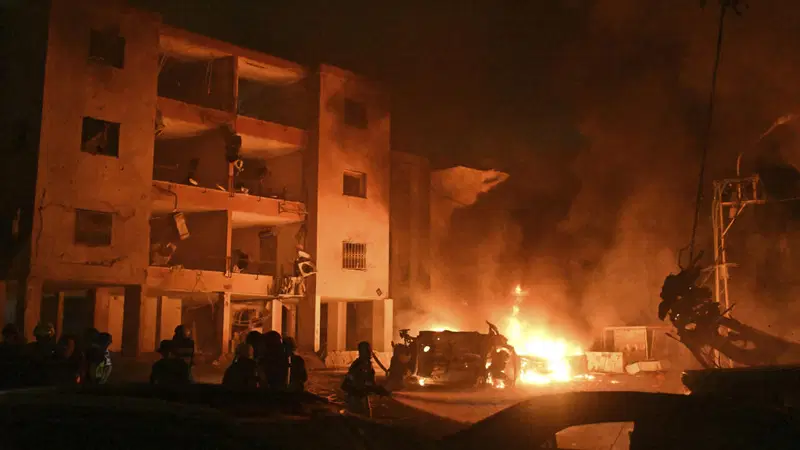In a dramatic turn in the escalating Middle East conflict, the Islamic Republic of Iran has indicated its willingness to enter into a ceasefire with Israel, even as Israeli airstrikes continue to batter key targets in and around the Iranian capital.
Among the latest strikes, Israeli warplanes targeted the headquarters of the Islamic Republic of Iran Broadcasting (IRIB), knocking national broadcasts offline for several hours and dealing a major symbolic blow to Tehran. The attack, part of Israel’s ongoing “Operation Rising Lion,” has intensified panic across the capital, where more than 330,000 residents have fled. Authorities have designated “red zones” near military and nuclear sites as emergency evacuation continues.
Eyewitnesses described scenes of chaos following the bombing of the IRIB complex. “All we could see was smoke and broken glass,” said one Tehran resident. “People were running, children were screaming. We thought it was the end.”
As the humanitarian crisis deepens, Iran’s government has begun pursuing diplomatic channels to end the fighting. According to credible reports, Iran has made informal overtures through Gulf intermediaries Qatar, Saudi Arabia, and Oman proposing an immediate ceasefire followed by a return to nuclear negotiations.
The proposed deal reportedly includes a temporary freeze on uranium enrichment, increased inspections by the International Atomic Energy Agency (IAEA), and a halt to ballistic missile testing. However, Tehran is demanding that the United States refrain from any military engagement or coercive actions during negotiations.
Despite the offer, Israel remains firm. Prime Minister Benjamin Netanyahu has dismissed the ceasefire proposal, stating at a press conference: “This is not the time for half-measures. We will finish what we started.” He reiterated Israel’s objective of neutralizing Iran’s nuclear and missile threat.
The conflict erupted four days ago after Iran allegedly launched a cyberattack on Israel’s nuclear command infrastructure. In retaliation, Israel launched a series of airstrikes targeting Iranian military assets. Iran has since fired over 150 missiles at Israeli cities including Tel Aviv and Haifa. While Israel’s Iron Dome and David’s Sling systems have intercepted most of the projectiles, several have caused civilian casualties and damage.
Global markets reacted swiftly to Iran’s apparent diplomatic pivot. Oil prices, which had surged earlier in the week, dropped by nearly 4% on Monday amid cautious optimism about a possible de-escalation. “The prospect of a ceasefire however tentative has calmed fears of prolonged disruption to oil supply routes through the Strait of Hormuz,” one financial analyst said.
The toll is mounting: official figures indicate at least 24 Israelis and 224 Iranians have died so far, with hundreds more wounded. Hospitals in both countries are struggling to cope under emergency conditions.
Behind the scenes, diplomatic efforts are gaining momentum. Oman is reportedly drafting a peace framework involving a phased military withdrawal, mutual de-escalation commitments, and the establishment of a multinational monitoring mechanism under UN supervision.
The United Nations and European Union have welcomed Iran’s proposal. UN Secretary-General António Guterres has called for “an immediate and unconditional ceasefire to prevent further civilian suffering.”
Former U.S. President Donald Trump, who continues to exert significant influence on the crisis, warned against further escalation. “If this continues, we risk World War III,” he said in a public address. Trump also reportedly rejected Israeli requests for U.S. support in a covert operation to assassinate Iran’s Supreme Leader, Ayatollah Ali Khamenei, warning it could ignite a broader regional war.
Despite diplomatic overtures, the military campaign shows no signs of slowing. Israeli jets continue operations over Iranian airspace, and Tehran has not suspended its missile launches.
With the situation teetering on the brink of a wider regional conflict, the next 48 hours are expected to be critical. The world watches closely to see whether diplomacy can halt the descent into further chaos—or if the region is poised for even deeper conflagration.



